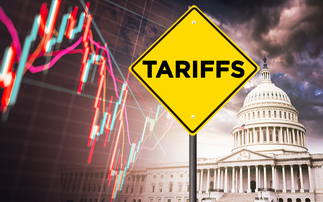
Redington's offsetting projects include forest protection in Colombia
Redington has completed the offsetting of its historic direct and indirect carbon emissions.
The investment consultant said it had partnered with BeZero Carbon to calculate its carbon footprint for the period of 2006 to 2020 as well as to design and implement a tailored carbon-neutral offsetting strategy.
The strategy comprises a portfolio of five projects, all of which are subject to stringent third-party accreditation as well as the BeZero Carbon Rating methodology - a proprietary approach which assesses the efficacy and underlying risk factors of carbon projects across the world.
Each project in the portfolio is a minimum of investment-grade rated and offers clear additionality - meaning that without external funding the carbon benefits would not arise.
Projects include grassland protection in the US, peatland restoration and conservation in Indonesia, nitrous oxide abatement in Egypt, waste management to energy in India, and forest protection in Colombia.
Additional quality controls include ensuring that credits are not double-counted or used by other organisations for reduction or regulatory requirements, as well as individually judging each project specifically for its level of permanence in emission reductions.
Projects will also be continually monitored by BeZero Carbon to ensure that any unexpected project-based emissions or leakage are compensated for. Redington has also chosen to offset 1.4x its legacy emissions footprint so as to provide an additional layer of mitigation.
This follows Redington's announcement in April that it would be aligning its default client advice with the goal to reach net-zero carbon emissions by 2050 at the latest.
Both its default client advice and its carbon offsetting are among a number of pillars forming Redington's seven-point climate action plan to integrate sustainability across its entire business.
Redington chief operating officer Lee Georgs said: "We're proud of the work that we have done with BeZero Carbon to calculate and offset all of Redington's historic carbon emissions. While our focus as a business is on reducing emissions in the future, there is no alternative but to offset legacy emissions, and so we strongly believe this was the right thing to do."
"Certainly, we recognise that, given the relatively low-level of our historic emissions, this latest contribution is a drop in the ocean compared to what the wider industry and global community must achieve overall. But if all businesses of our size were able to take this approach, collectively, we could make a huge difference."









